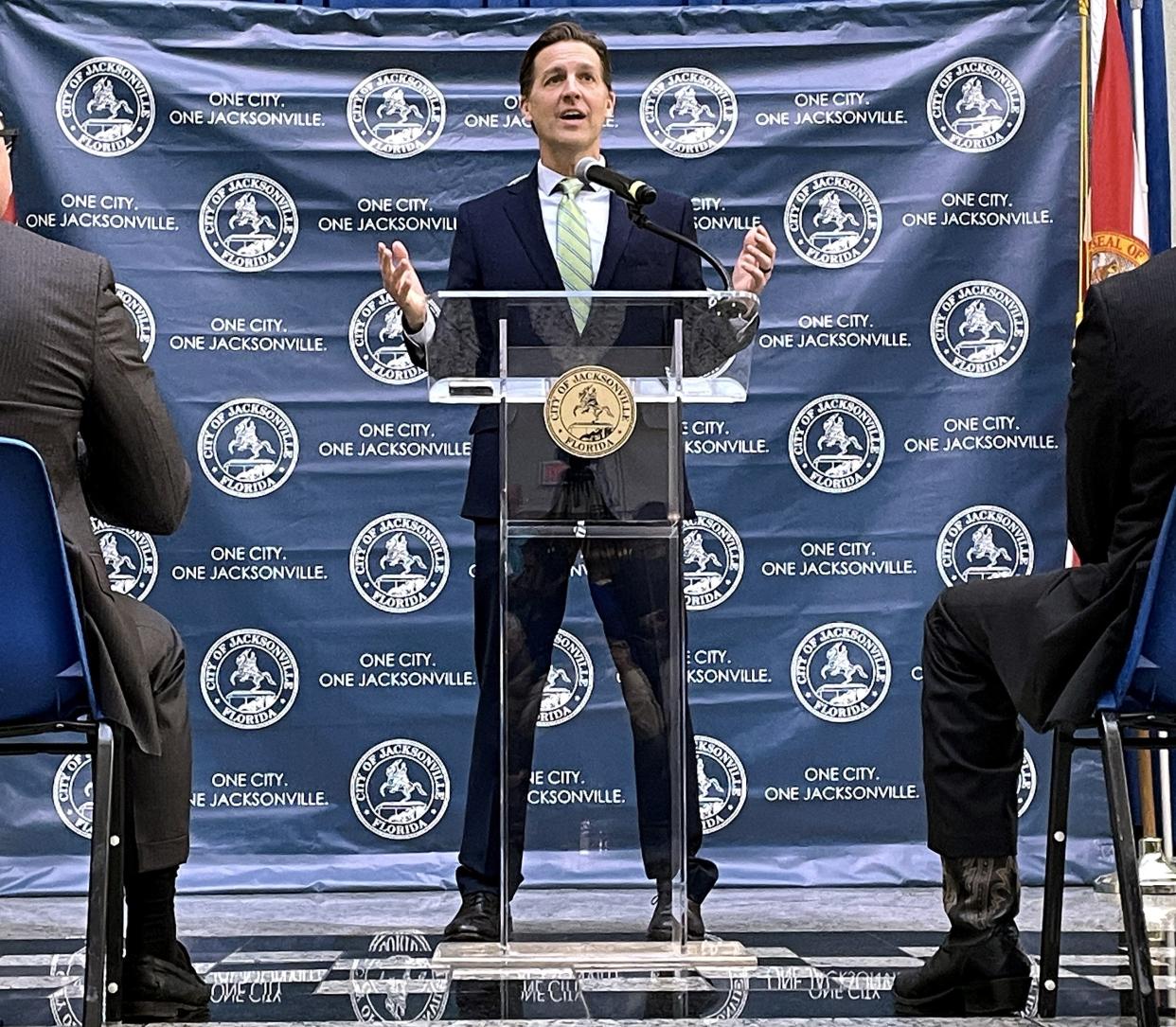UF leaders tie No. 1 ranking in new report to planned Jacksonville graduate center

The Wall Street Journal's ranking of the University of Florida as the No. 1 public university in the country gave UF leaders a chance to tout a planned graduate center in Jacksonville as the kind of "elite and practical" education they want to carry into the future.
Construction of that graduate center remains years down the road and even the specific degrees it will offer remain undetermined. But it continues to pick up financial support from the city of Jacksonville with another $15 million in Mayor Donna Deegan's proposed 2023-24 budget that City Council will vote on this month.
The Wall Street Journal released its rankings last week of 400 universities for its "2024 Best Colleges in the U.S." report. The rankings were based in large part on how a school helps students by boosting the salaries they can make after graduation. UF leaders said the graduate center in Jacksonville would likewise be geared toward making a difference for businesses by linking them with the university's technology-based research.
Town-gown: Jacksonville backs $20 million for UF campus in downtown. What's at stake for city?
City-Lab Jacksonville: Jacksonville will be "living laboratory" for UF architecture degrees
State support: UF graduate campus in Jacksonville and Ponce de Leon in St. Augustine avoid DeSantis vetoes
"The University of Florida does not make small plans," UF board of trustees Chairman Mori Hosseini said in the school's reaction to the Wall Street Journal ranking. "We dare to dream big, and we work hard to accomplish audacious goals."
He said UF is "building a world-class university that is both elite and practical. That’s why our graduate center in Jacksonville is going to be an important part of our mission to prepare our students and serve our state."
"UF has a special role to play, and our Jacksonville graduate center will give our students incredible opportunities to partner with some of our state’s most dynamic businesses," UF President Ben Sasse said.
Hosseini and Sasse joined Mayor Lenny Curry and other city officials in February to announce UF would explore putting a graduate-level center in the downtown area of Jacksonville.
The state Legislature then approved $75 million in state money for the proposed UF Health and Financial Technology Graduate Education Center. The request for the state money said the education center would offer professional graduate programs creating a "pipeline of highly trained students" while fostering innovation and invention through "solutions-based programs" developed by UF Health and the UF colleges of business and engineering.
Curry and City Council approved $20 million as the first installment in a three-year commitment for $50 million in city financial backing. Deegan, who became mayor July 1, put her support behind the project by including the second batch of funding in the amount of $15 million. The final $15 million of that commitment will come in the 2024-25 budget.
Meanwhile, Jacksonville businesses have rallied behind achieving a $50 million target for private donations for the center.
UF has not said where it will locate the campus, other than it will be in the downtown area. UF would have five years to finish the project after the school has obtained the land and permits that make it ready for ground-breaking, according to terms of its agreement with the city. The outer limit for the project is a 10-year term for the agreement.
Sasse has begun working on “10x10x10” strategy for 10 areas where UF should strive to be in the in the top 10 over the next 10 years. One of his "early emerging priorities" is artificial intelligence, which is one of the research fields the Jacksonville graduate center would concentrate on developing.
Other areas are agriculture, space, engineering, business, healthy aging, sports in the arena and in the classroom, real estate, psychology, pediatrics, education innovation in teaching and learning, allied health and health specialty occupations, public health, and sustainability and conservation.
UF already has a large medical center and teaching hospital in Jacksonville that is involved in public health matters. On a smaller scale, UF's City-Lab Jacksonville joined Orlando as the second satellite location for graduate-level classes in the field of architecture. UF has said Jacksonville's location on the St. Johns River and Atlantic Ocean will be a backdrop for course about how the design of buildings can adapt to climate change.
This article originally appeared on Florida Times-Union: UF says top ranking in Wall Street Journal fits plan for Jacksonville

